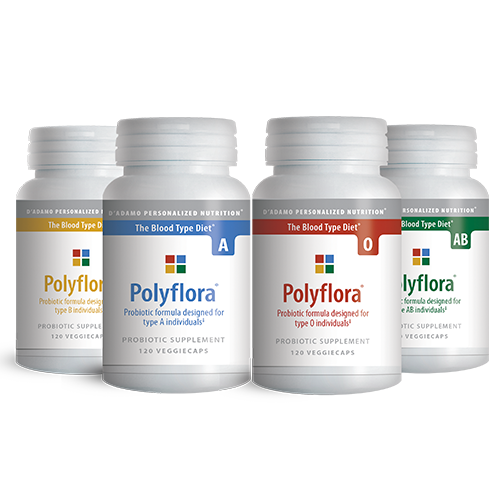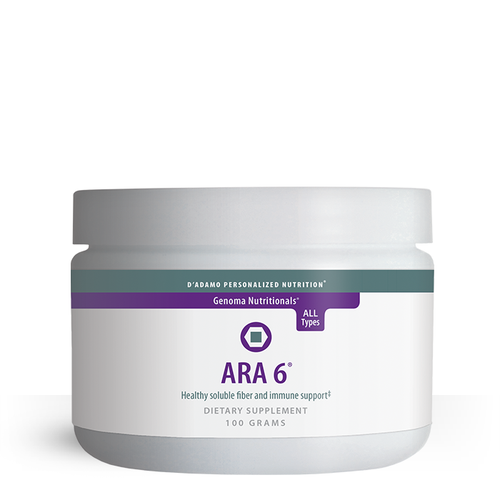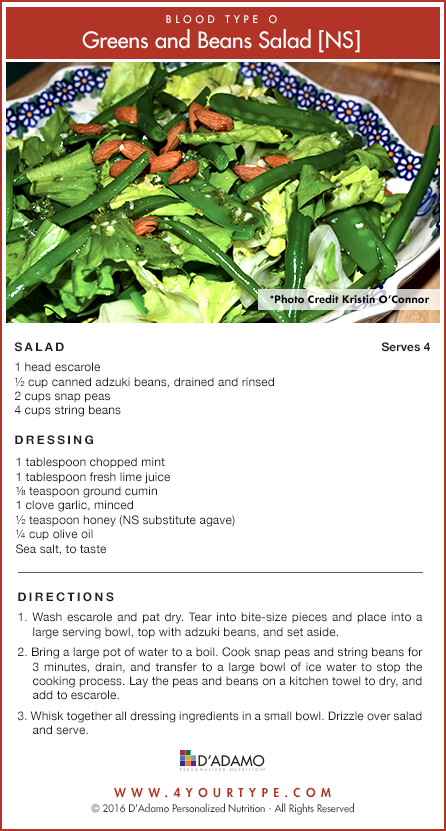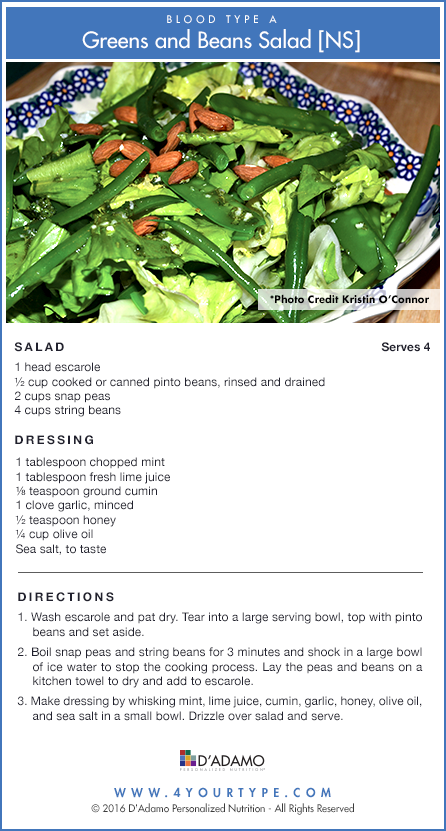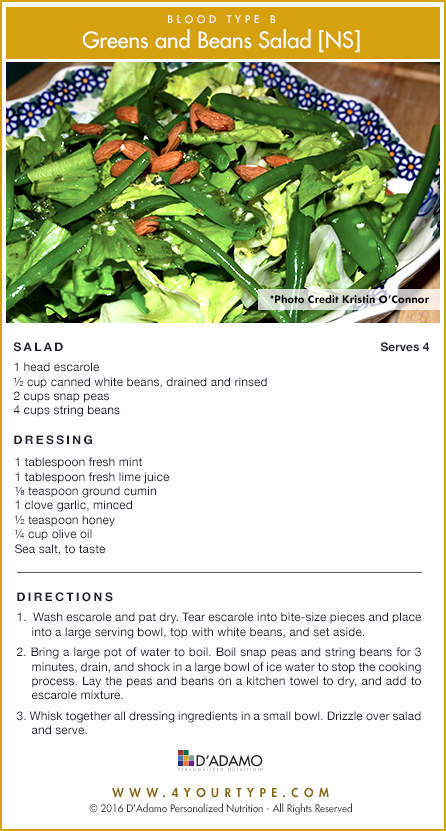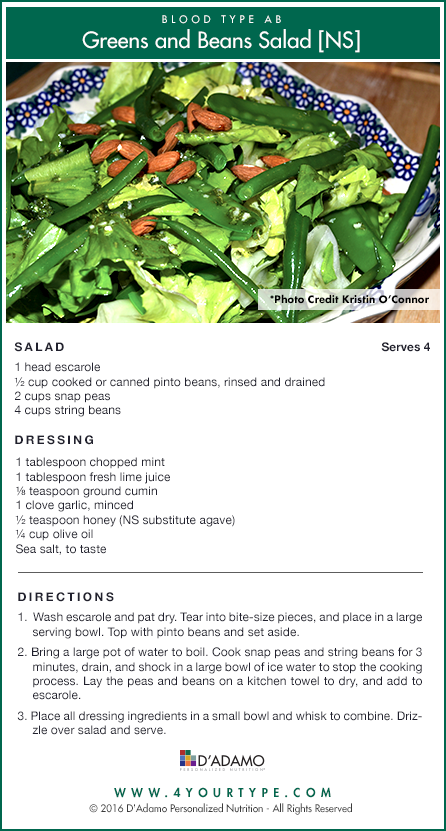Volume 13, Number 8
- Happy August by Martha D'Adamo
- Blood Type Diet and the Microbiome by Dr. Peter J. D'Adamo
- Ask Dr. D'Adamo: What Are the Benefits of Probiotic Supplementation?
- Dr. D'Adamo's Favorites for a Healthy Microbiome
- Greens and Beans Salad - Right For All Blood Types
- We're on Instagram! Follow us for daily inspiration and quick healthy lifestyle tips.
Happy Augustby Martha D'Adamo |
|
|
|
Every day, we read something new about the microbiome, that teeming pool of microorganisms in our digestive tracts. Understanding all the information out there, and more importantly, knowing what to do with it, makes a difference in optimal gut health and overall wellness and vitality. Martha |
Blood Type Diet and the Microbiomeby Dr. Peter J. D'Adamo |
|
|
There are millions of bacteria and yeast living in your digestive tract, known as the microbiome. The different kinds of microbes are usually in balance with one another, preventing any one type of germ from overgrowing and causing disease. Cultured foods and probiotic supplements provide additional "friendly bacteria" to help restore intestinal balance. What does this have to do with Blood Type? Blood type antigens are not only found in your blood stream; they're also found in your digestive system. Many bacteria in your GI tract eat these blood type antigens. Other types of bacteria secrete substances that act against your blood type, so those strains should be avoided. This is why people of different blood types have different bacteria found in their microbiomes, and there is no "one size fits all" protocol for building a healthy microbiome. "In fact, certain bacteria are 50,000 times more likely to turn up in people with one blood type than another. Look at it this way: much like putting sunflower seeds into your bird feeder will encourage Cardinals to hang out in your backyard, the microbiome of a person who is Blood Type B will tend to have bacteria with a preference and enzyme capacity for degrading the B-antigen. The same is true of the other blood types. Our blood type can actually "seed" our gut by encouraging the growth of only those bacteria strains that can use our blood type antigens as a source of food, while our anti-blood type antibodies will attack bacteria that carry antigens resembling those of an opposing blood type." (1) Healthy gut flora is essential for overall health and well-being, and here are just a few highlights of what these good bugs can do:
Aging, poor dietary choices, stress, and antibiotic/drug use or over-use can cause the quantity of your bacteria to decline over time. There are three things that impact your gut's well-being and protect your gut bacteria—your diet, your fiber intake, and the availability of short chain fatty acids in your gut. Short chain fatty acids are produced when bacteria break down fiber, and they're also found directly in some foods such as butter, ghee, and some cheeses. These short chain fatty acids provide energy to colon cells. Healthy, well-nourished colon cells secrete substances that promote the growth of good bacteria. Additionally, supporting your microbiome health by supplementing with probiotics specifically designed for your Blood Type provides the additional support needed to balance and nourish your gut bacteria. |
|
|
|
1. Excerpted from The 20th Anniversary edition of Eat Right 4 Your Type by Dr. Peter D'Adamo with Catherine Whitney to be released in January 2017. |
|
For more information, including a complete listing of foods and exercise recommendations for each blood type, you can refer to my books Eat Right 4 Your Type. and Live Right 4 Your Type. A complete listing of the foods for the Blood Type Diet can also be found on the Type Base. |
|
Ask Dr. D'Adamo:What Are the Benefits of Probiotic Supplementation? |
|
|
Q: I've been reading a lot about probiotics lately. I noticed that you have four different probiotics – why? Do I need to take a probiotic every day? What are the benefits of taking your supplements as opposed to another probiotic – or just eating yogurt?
At the time, blood type wasn't understood, however, further research has found that your blood type antigens are actually prominent in your digestive tract and, in about 80% of individuals (secretors), are also prominent in the mucus that lines your digestive tract. Because of this, many of the bacteria in your digestive tract actually use your blood type as a preferred food supply. In fact, blood group specificity is common among intestinal bacteria with almost ½ of strains tested showing some blood type A, B, or O specificity. To give you an idea of the magnitude of the blood type influence on intestinal micro flora, it has been estimated that someone with blood type B will have up to 50,000 times more of some strains of friendly bacteria than either blood type A or O individuals. Second, some strains of beneficial bacteria actually can have lectin-like hemagglutinin activity directed against your blood type, so avoiding those is a good idea. Polyflora Blood Type Specific Probiotics [ O | A | B | AB ] also blend "prebiotics" (foods which provide special growth factors for probiotic bacteria) that are right for each type. Yes, I recommend that you take probiotics daily. Even using strains of friendly bacteria that have a great ability to survive digestion and colonize your digestive tract, there is a tendency for a gradual decline in the quantity of these bacteria over time. This decline is substantially worsened with stress, poor dietary choices, antibiotics and other drugs. In today's world, with all of its modern pressures, the ability to maintain an optimal intestinal microbial balance is almost always taxed. It has also actually been estimated that we consume 1 million times LESS healthy bacteria in our diet today than our ancient ancestors consumed. Regular use of probiotics has shown to restore intestinal balance, which results in prevention of the adherence of unwanted microorganisms, the production of a wide array of antibacterial and antifungal compounds, and improved resistance against bacteria like E.coli, Salmonella, and H. pylori. |
|
Greens and Beans SaladRight 4 All Blood Types |
|
With all the great fresh greens and vegetables available this time of year, we wanted to highlight a delicious, blood type specific summer salad. Each salad shares some ingredients, so you can use it as a base for mixed blood type dining. |
|
Find this and more delicious, simple to prepare recipes in the Eat Right for Your Type Personalized Cookbooks. |
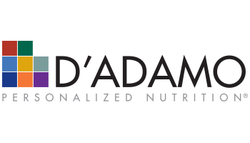


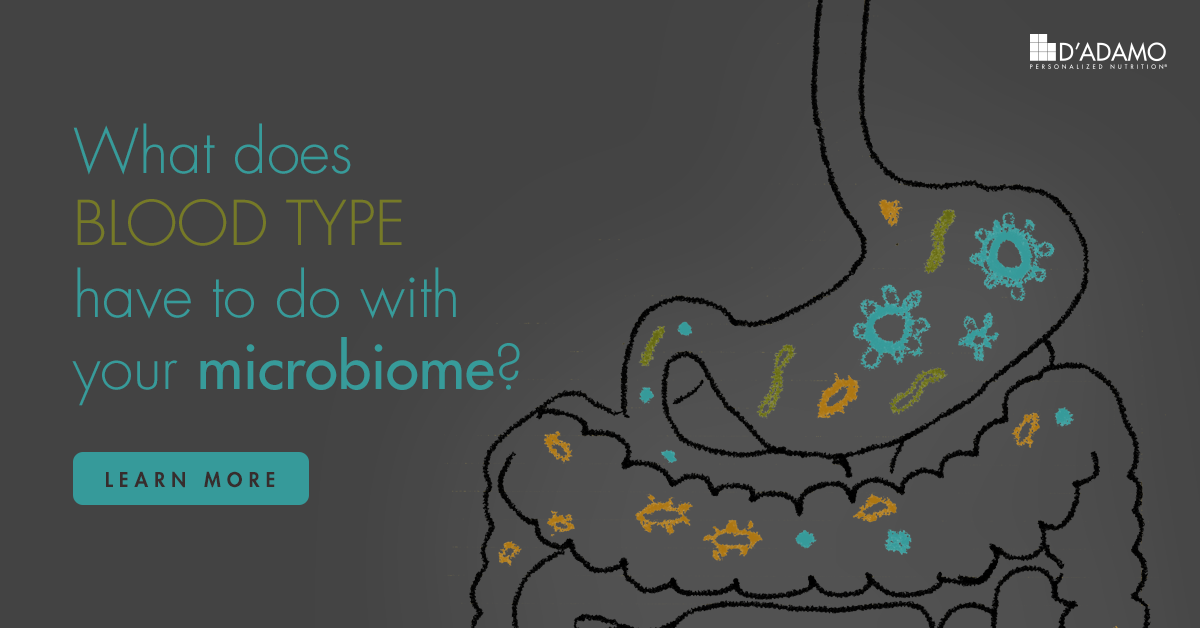
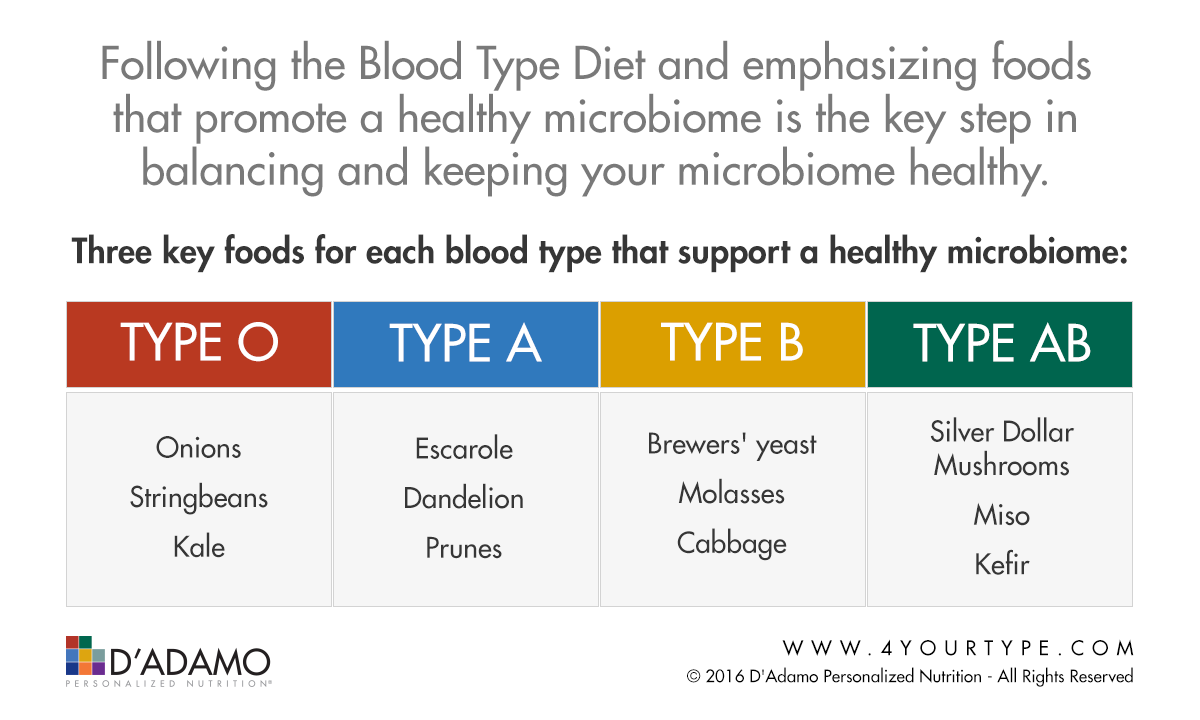

 A: The term "probiotic" means "in favor of life". It was coined in 1910, by a Russian physician named Metchnikoff, who promoted a theory of longevity that associated prolonged life and improved health with decreased gastrointestinal toxicity. He suggested that the aging process could be slowed with fermented foods that contain friendly bacteria.
A: The term "probiotic" means "in favor of life". It was coined in 1910, by a Russian physician named Metchnikoff, who promoted a theory of longevity that associated prolonged life and improved health with decreased gastrointestinal toxicity. He suggested that the aging process could be slowed with fermented foods that contain friendly bacteria.